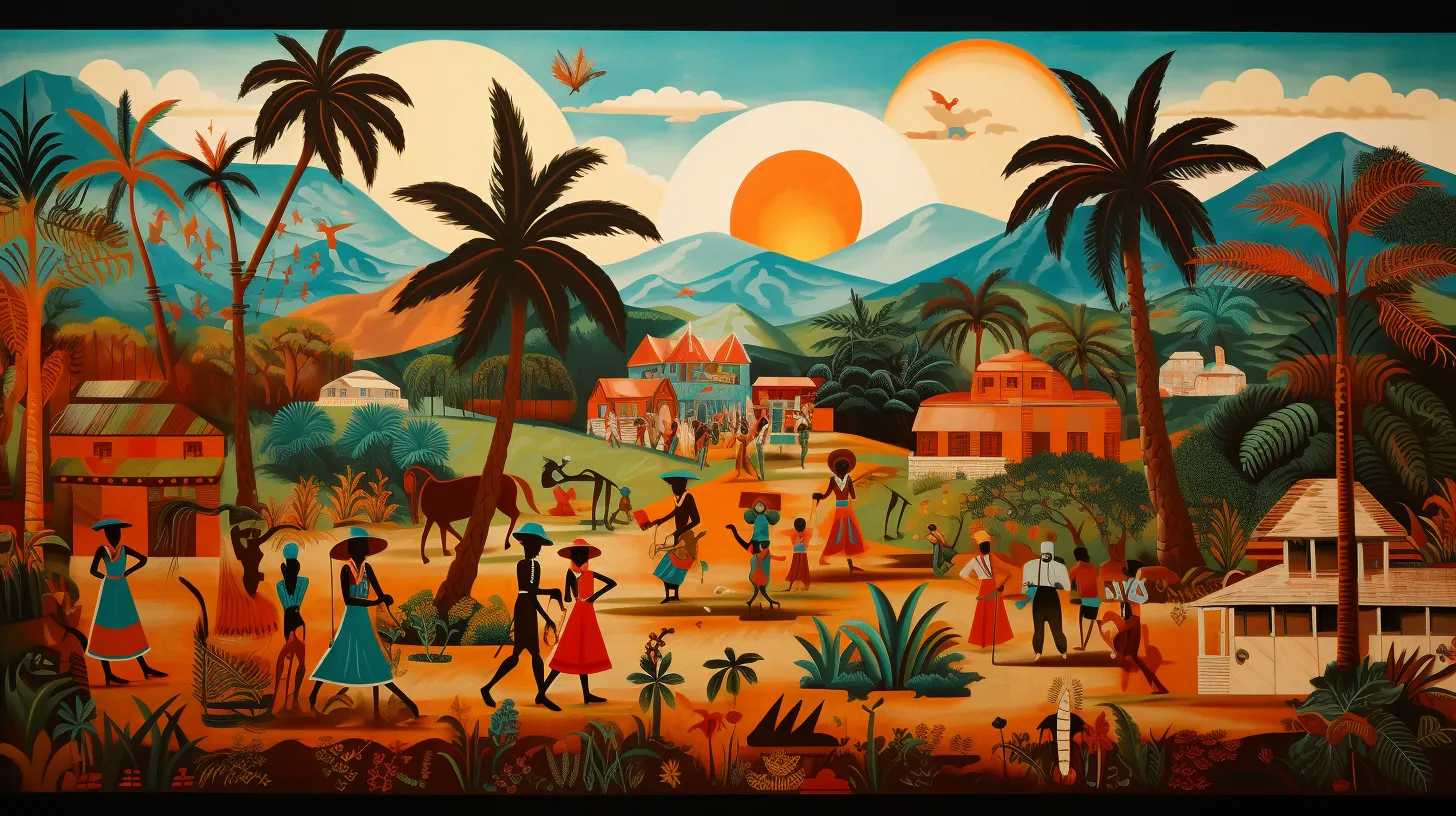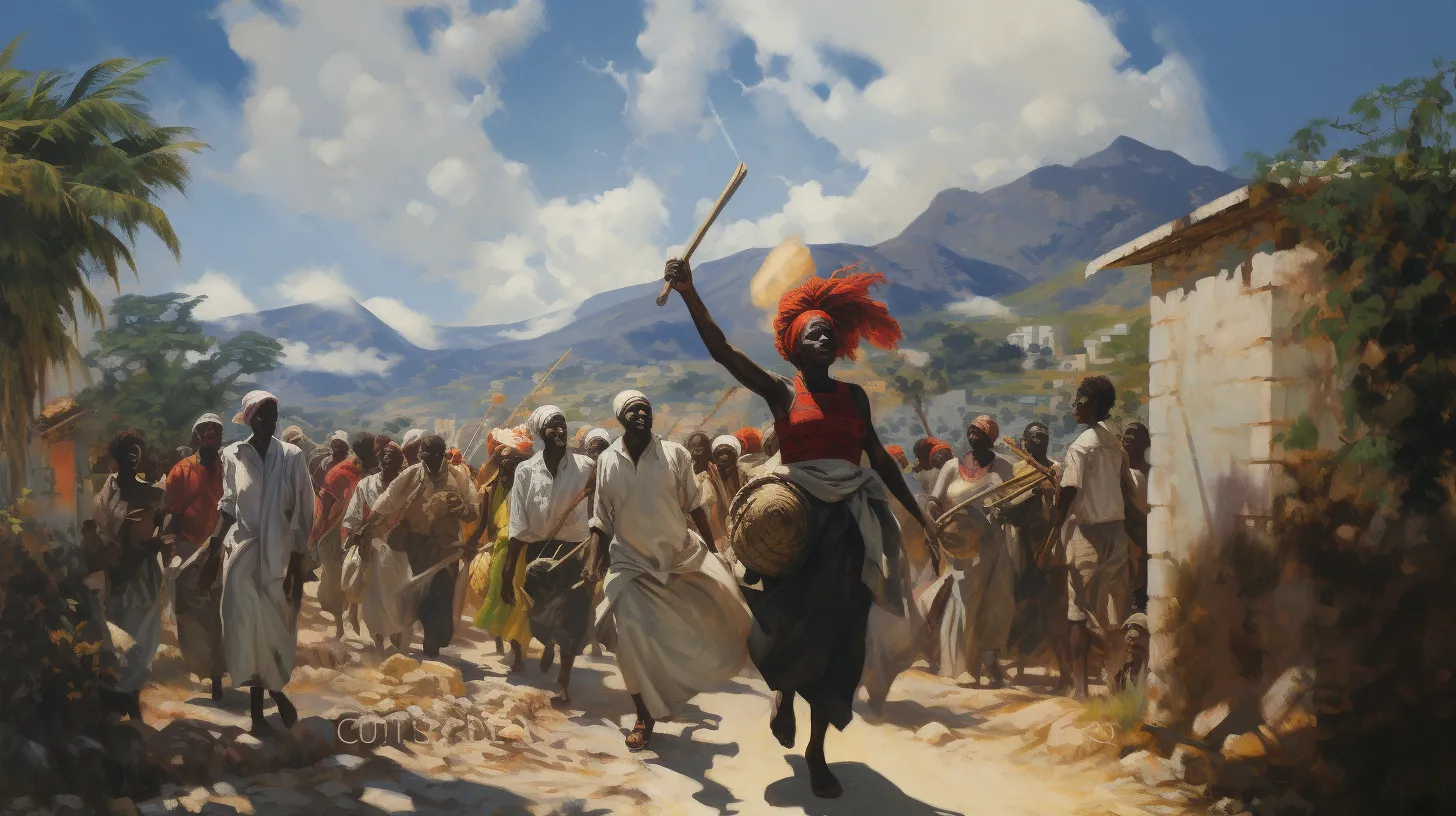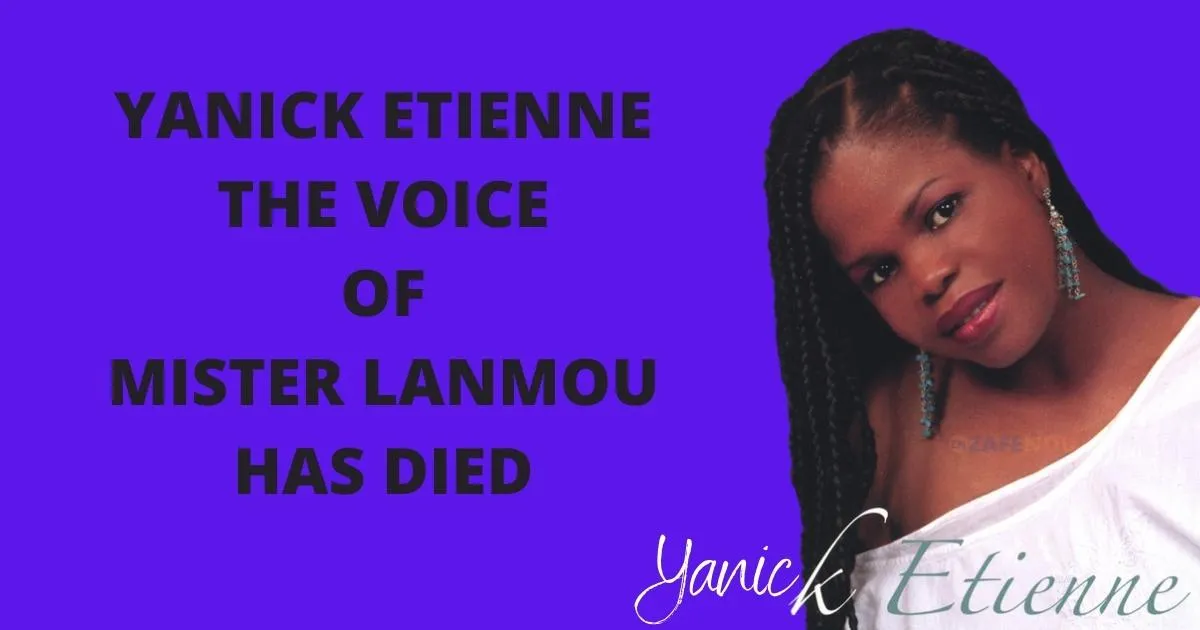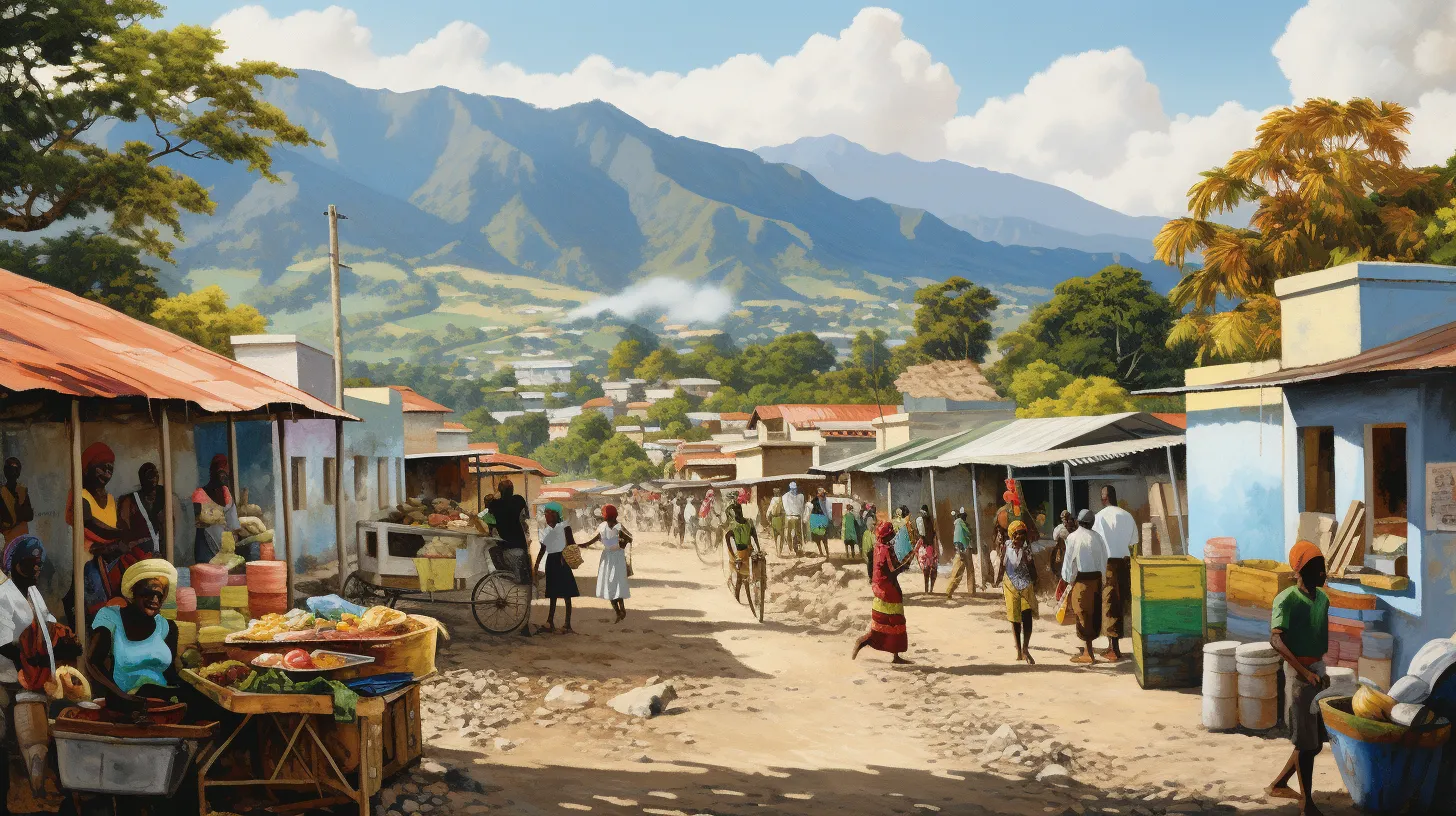Interested in learning about Haiti’s rich traditions? Haiti is a diverse tapestry of cultural customs, blending stories, music, and vibrant festivals.
From the mythical tales of Krik-Krak to the pulsating beats of Rara and Carnival, Haiti’s traditions are a reflection of its African, French, and Taino influences.
These customs have shaped the essence of Haitian identity for centuries, expressed through communal living in Lakou and spiritual practices of Vodou.
Haiti’s traditions offer a profound glimpse into the heart and soul of this extraordinary nation.
Vibrant Festivals

Vibrant festivals in Haiti, such as Rara, Fèt Gede, Carnival, Lansèt Kòd, and the Krik? Krak! Festival, showcase the rich cultural traditions and lively celebrations of the Haitian people.
These festivals are deeply rooted in Haitian culture and history, bringing together families and communities in joyous and colorful gatherings.
They provide a platform for the Haitian people to express their heritage through music, dance, and traditional rituals.
From the exuberant parades of Carnival to the mystical ceremonies of Fèt Gede, these festivals offer a glimpse into the vibrant and diverse traditions of Haiti.
The Krik? Krak! Festival, in particular, emphasizes the importance of storytelling and passing down Haitian folklore from one generation to another, highlighting the strong sense of family and extended family within Haitian communities.
These celebrations also play a significant role in commemorating events like Independence Day, further strengthening the cultural identity of the Haitian people.
Unique Customs and Beliefs

Are there any unique customs and beliefs that distinguish Haitian culture from others in the Caribbean region?
Absolutely! One standout tradition is the celebration of New Year’s Day with Soup Joumou, a hearty pumpkin soup. This dish holds historical significance as it symbolizes freedom from French colonial rule.
Another integral part of Haitian culture is Haitian Vodou, a spiritual practice blending African, Christian, and Taíno traditions. It influences various aspects of daily life, including art, music, and literature.
Family meals are also central, often bringing together loved ones to share stories and bond over food.
Additionally, customs like celebrating Bawon Samdi, First Communion, and Flag Day are deeply rooted in Haitian culture, adding to the rich tapestry of unique customs and beliefs that define the Haitian way of life.
African, French, and Taino Heritage

The Haitian storytelling tradition, Krik-Krak, is a prime example of the country’s rich cultural heritage, blending elements of African, French, and Taino traditions, which have deeply influenced various aspects of Haitian life.
This fusion of African, French, and Taino heritage is woven into the history, culture, and religious practices of Haiti, making it an essential part of the country’s identity. From the social organization of Konbit to the communal living spaces of Lakou, these traditions reflect the influence of the country’s diverse heritage in shaping community cooperation and principles of sharing.
Even in religious practices like Vodou, the fusion of African, Christian, and Taino traditions showcases the depth of Haiti’s cultural heritage. Additionally, traditional practices such as Beny Chans, a herbal shower, highlight the enduring impact of African, French, and Taino traditions on Haitian customs and beliefs.
Role in Shaping Identity

How significantly does the storytelling tradition of Krik-Krak shape the cultural identity of Haitians?
Haiti’s culture and history are deeply intertwined with its rich traditions. The storytelling tradition of Krik-Krak, passed down through generations, plays a vital role in shaping the identity of Haitians. It provides a platform for preserving oral history, folklore, and values, fostering a sense of community and shared heritage.
Additionally, the celebration of Fèt Gede, dedicated to honoring the dead, reinforces the connection to ancestors, promoting a sense of continuity within the community. The practice of Haitian Creole, the first independent black republic, and the music tradition of Rasin also contribute to shaping the cultural identity.
These traditions serve as a means for Haitians to connect with their roots, express shared experiences, and maintain a sense of cultural pride, especially for Haitian immigrants or diaspora during events like the World Cup.
Endurance for Centuries

Enduring for centuries, many Haitian traditions have displayed remarkable resilience and lasting impact on the nation’s cultural fabric.
From the vibrant and rhythmic celebrations of Rara and Carnival to the communal living in Lakou, these traditions have stood the test of time. In both rural and urban areas, Haitians have upheld these customs, passing them down through generations.
The Krik-Krak storytelling, Konbit social organization, and rich herbal traditions like Beny Chans continue to thrive, connecting modern-day Haitians to their ancestors.
Despite periods of political unrest, these traditions have remained steadfast, embodying the strength and endurance of the Haitian people. Even in the face of adversity, the pride in their heritage and the celebrations of Ancestry Day and Independence Day persist, a testament to the unwavering spirit of the nation.



